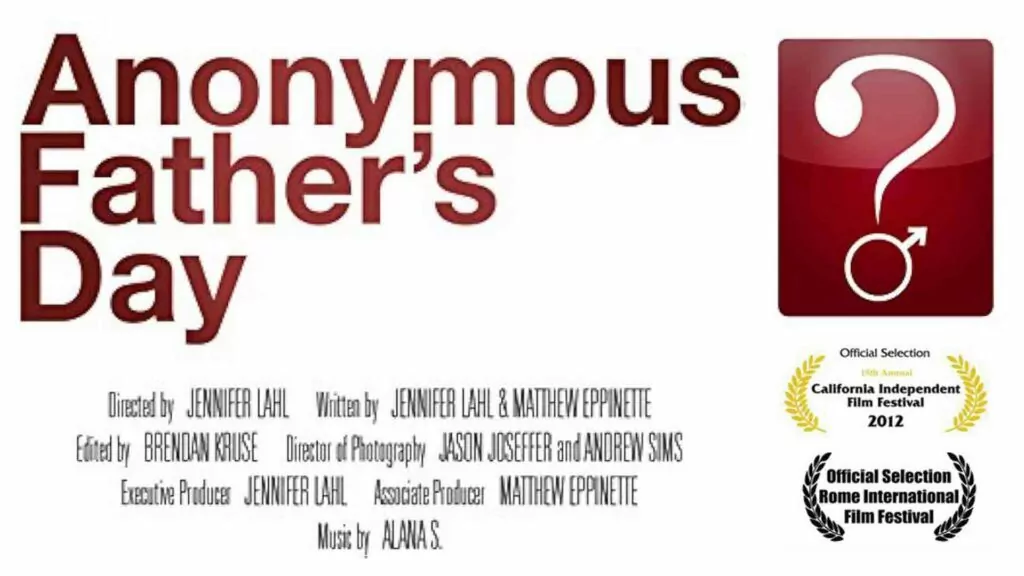What Darwin didn’t know
Darwin, ignorant of the inner workings of the cell, could imagine them to be simple. But the more we learn of the cell today, the more we discover there is to learn, and thus explain. And that’s a growing problem for evolution. It isn’t as if the more we learn, the more we begin to understand how life could have evolved – it’s the very opposite! As David Berlinski put it:
“The cell is an unbelievably complex bit of machinery, unfathomably complex. And we haven’t understood its complexity at all. Every time we look there seems to be an additional layer of evocative complexity that needs to be factored into our theories. Don’t forget the eternal goal is to explain the emergence of this complexity, and if we’re continually behind the curve because the complexity is increasing every time we look that eternal goal is also receding from view, not approaching. It’s receding; it’s becoming more and more difficult to construct a theory for that.”
A granddad joke
Grandpa always said “when one door closes, another one opens.” He was a great man, my grandpa, but a horrible cabinet maker.
Wit and wisdom of Thomas Sowell
While it’s not clear whether American economist Thomas Sowell is Christian – he almost never talks about God – his understanding of human nature certainly lines up with what the Bible says about our fallen state. Here are a few of his pithier quotes, along with a comment or two,
- “Fair” is one of the most dangerous concepts in politics. Since no two people are likely to agree on what is “fair,” this means that there must be some third party with power – the government – to impose its will. The road to despotism is paved with “fairness.”When there is no submission to God, His standards, and His definitions – whether of fairness, life, marriage, gender, and more – then there is no justice exercised, only power.
- There are three questions that would destroy most arguments of the Left. The first is – compared to what? The second is – at what cost? And the third is – what hard evidence do you have? Continuing from the point above, we can add one more – by what standard?
- When you want to help people you tell them the truth. When you want to help yourself, you tell them what they want to hear.“Faithful are the wounds of a friend; profuse are the kisses of an enemy.” – Prov. 27:6
- One of the most important reasons for studying history is that virtually every stupid idea that is in vogue today has been tried before and proved disastrous, time and again.“…there is nothing new under the sun.” Eccl. 1:9b
- The strongest argument for socialism is that it sounds good. The strongest argument against socialism is that it doesn’t work. But those who live by words will always have a soft spot in their hearts for socialism because it sounds so good.“…with itching ears they will gather around themselves teachers to suit their own desires. So they will turn their ears away from the truth and turn aside to myths.” – 2 Tim. 4:3b-4
Fixing democracy in 1 step
Every ballot needs a “none of the above” option. Then, if the “nones” won, the election would be run again with an entirely new slate of candidates – all of the original candidates would be disqualified.
Questions for you and your kids
I ran across a book by Les Christie, What if….?, which offered up 450 discussion starters for parents to tackle with their teens. The idea is great, the book only okay, because of the inclusion of some troubling questions. But what follows are some of the best.
You and your teen can both try to answer them, either working through all the possible answers (including what the Bible might have to say) or just running through them quickly and then making up some questions of your own. So, what if:
- you could speak to the prime minister for 1 minute?
- you inherited a million dollars?
- the Internet went down?
- you could be your parent for a day?
- you could only read 10 books from now on?
- a store clerk accidentally gave you back $10 extra in change?
- a flood meant you could only save 3 things from your room?
- you could begin one new tradition in your family?
- you had to name three of your heroes?
- you had to pick a slogan to describe your life?
Identifying as right
In the recent online abortion debate between conservative commentator Michael Knowles and online “influencer” Brontë Remsik, a clever defense of the unborn also ended up highlighting why Christians can’t adopt “inclusive” language. Just short of the half-hour mark, the third-year medical student Remsik took Knowles to task for refusing to use terms like “pregnant people” rather than “pregnant women.”
Brontë Remsik: It’s interesting, you come into this conversation trying to hold this moral superiority, but when I use inclusive language – which it only takes a couple extra syllables to use inclusive language…
Michael Knowles: To include who?
BR: To include people who don’t identify as women but can become pregnant.
MK: So, like a person who is born a woman and then identifies as a man and is pregnant. So, you’re telling me that to be a moral person I need to accept the idea that someone who is born a man can really become a woman. That’s a prerequisite of my being a moral person.
BR: Yes, to me it is. Because if you are trying to deny someone of their identity and deny what their life experience is then that doesn’t seem like a moral stance to me. I want to be accepting and I want to respect people’s life experiences. And I want to respect how they identify, and respect how they want to present themselves to the world.
MK: I would like to identify, I do identify actually, as the correct person on this issue of abortion. I identify as being correct, and more correct than you on this issue. And I would just ask that you accept and affirm my identity. Do you?
BR: You are not a medical professional, and abortion and pregnancy is a medical concern.
MK: I’m just sharing my identity.
BR: That’s not your identity.
MK: That is my identity. I promise you that is my identity.
Remsik understood that if she had accepted Knowles’ identity, she would have conceded the debate. The same is every bit as true in the gender debate where one side recognizes that God determines our gender, and the other insists that we do. Requests to address a man with female pronouns might be positioned as a matter of politeness, but such an act would, in fact, concede the argument. It would be to identify him as correct about being a her.
Electric cars aren’t green
“Let’s clear something up… Electricity is not a power source, it is a delivery mechanism. Electricity will never be a power source. So it is inappropriate and inaccurate to say ‘electric cars are green.’ The cars themselves are not green, they are the color of the fuel used to create electricity. Electric cars are only as green as the electricity they consume. And infrastructure they require, and storage they rely on.” – David Salch
C.S. Lewis,
G.K. Chesterton,
and a whole bunch of t-shirts take down socialism
 My wife gave me a t-shirt screen printer for Christmas and since then I’ve been looking for some quotes worthy of being emblazoned across my chest. I’ve also been on an economics fix for the last year, so in keeping an eye out, I’ve seen a lot of t-shirts with pretty good socialism take downs. I also added a couple of longer quotes – from Chesterton and Lewis – that are either simply too long, or would necessitate me doing a few thousand push-ups or so, before my chest would be a wide enough canvas. But hey, maybe that’s just the motivation I need.
My wife gave me a t-shirt screen printer for Christmas and since then I’ve been looking for some quotes worthy of being emblazoned across my chest. I’ve also been on an economics fix for the last year, so in keeping an eye out, I’ve seen a lot of t-shirts with pretty good socialism take downs. I also added a couple of longer quotes – from Chesterton and Lewis – that are either simply too long, or would necessitate me doing a few thousand push-ups or so, before my chest would be a wide enough canvas. But hey, maybe that’s just the motivation I need.
- “…those who torment us for our own good will torment us without end for they do so with the approval of their own conscience.” – C.S. Lewis in God in the Dock: Essays on Theology
- Don’t ask the government to fix problems they caused
- Nothing the government gives you is “free”
- Capitalism makes. Socialism takes.
- The F in Communism stands for Food
- Trust God. Not government.
- The problem with socialism is that eventually you run out of other people’s money
- Conservatives are such elitists: they think they can run their lives better than the government
- “Individual ambition serves the common good.” – Adam Smith
- Socialism: the philosophy of failure, the creed of ignorance, the gospel of envy
- Child of God. Not of the State.
- “It may be said of Socialism, therefore, that its friends recommended it as increasing equality, while its foes resisted it as decreasing liberty…. The compromise eventually made was one of the most interesting and even curious cases in history. It was decided to do everything that had ever been denounced in Socialism, and nothing that had ever been desired in it…we proceeded to prove that it was possible to sacrifice liberty without gaining equality…. In short, people decided that it was impossible to achieve any of the good of Socialism, but they comforted themselves by achieving all the bad.” – G.K. Chesterton in Eugenics and Other Evils: An Argument Against the Scientifically Organized State
Ideas to improve sports: basketball
Basketball needs to eliminate free throws. When a defender fouls, the offense should get a point and keep the ball. Fouls on a shot would have the basket count if it goes in, and the offense would still keep the ball. There’d no longer be any “strategic” reason to foul, even late in a game. Bye-bye boring free throws!
Two bodies involved
Jeff Durbin is a Reformed Baptist pastor who, along with his church members, regularly witnesses in front of their local abortion clinic. In an exchange captured on their Apologia Studios YouTube channel, he had an opportunity to drive home the point that there are two bodies involved in any pregnancy.
Man: What’s wrong with them being able to choose?
Durbin: Who being able to choose?
Man: Whoever. People should be able to do what they want with their bodies.
Durbin: So, can I rape a woman?
Man: No, you shouldn’t do that.
Durbin: So I can’t do what I want with my own body, can I?
Man: You can do what you want with your body. You just can’t do anything with anyone else’s body.
Durbin: So, let me try this. A person should be able to do what they want with their own bodies. We shouldn’t be allowed to just abuse other people’s bodies.
Man: Absolutely.
Durbin: So, in the case of what’s happening inside there right now, the woman’s body is not dying. It’s another body, biologically distinct inside of her, that is being killed. I’m all for women doing what they want with their bodies. I’m in agreement with you actually, fundamentally, that we shouldn’t be able to harm other people’s bodies, which is precisely what’s happening in there. I’m glad you joined us.













